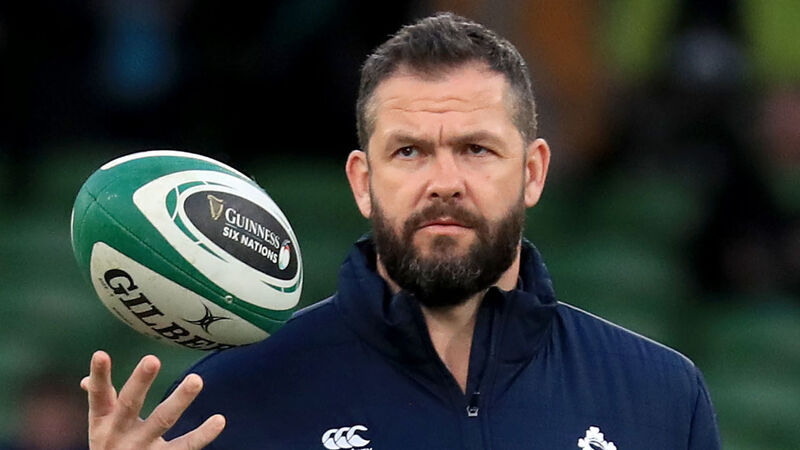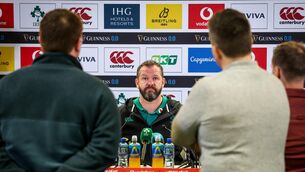Donal Lenihan: Cardiff win would set up all sorts of enticing scenarios for Ireland

Ireland head coach Andy Farrell: A win against Wales in Cardiff could lead his side onto greater things in this years' Six Nations. Picture: Donall Farmer/PA Wire
Whoever emerges triumphant at the end of this, the most extraordinary Six Nations campaign in the tournament’s history, dating back to 1883, will have mastered a lot more than just the nuances of the game.
The novelty of operating in a bio-secure bubble must be wearing thin for the players by now. Living in splendid isolation, without the distraction of fans, media, and family may have even suited some of the players at the outset of this pandemic but that day has long passed.










